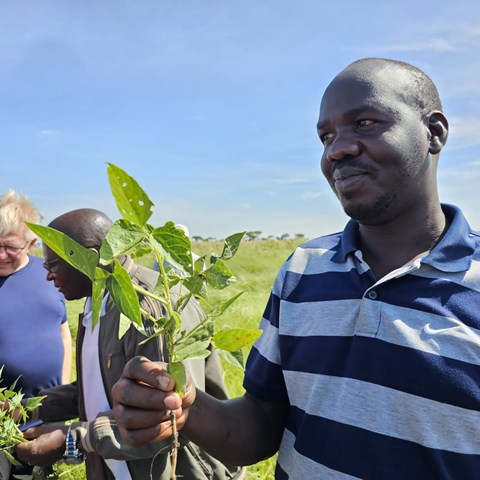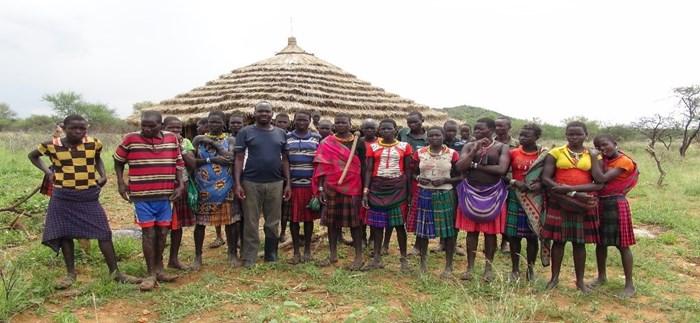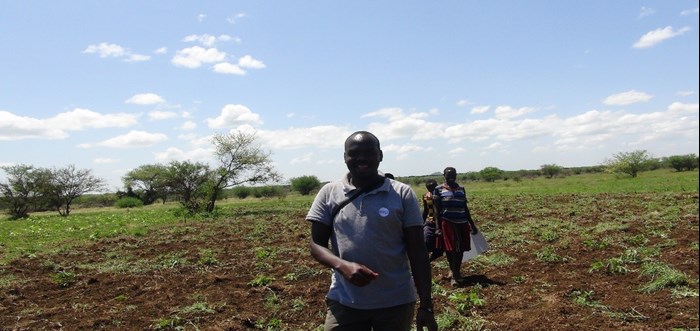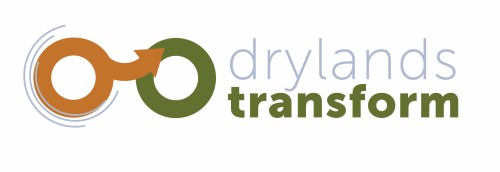The years beginning from 2020 have been the worst in Karamoja region, where the dry spell has been prolonged. In 2022, we had to time the short rains of June, July and August to start experimental plots and kitchen gardens and we had good results in Rupa and Poron, indeed Drylands Transform plots were the only places people could see vegetables and grass growing, says Zachary.
I was first contacted by Prof. Denis Mpairwe during proposal development when he required some information from the field. By then, I had already worked with him in another Rangeland health and rehabilitation pilot project in 2014. At the start of the Drylands Transform project, Denis asked me to continue our collaboration within Drylands Transform.
Zachary is one of the Drylands Transform field officers and his work involves managing field level research experimental plots and kitchen gardens, collaborate with and engage district level and local stakeholders in Drylands Transform project activities, and assist interdisciplinary research teams in data collection. Therefore Zachary has an in depth knowledge and experience from the four project sites. Even if the four sites are relatively close to eachother, there are distinct differences. Zachary further explains:
The four sites in Uganda and Kenya are all unique; the sites in Kenya are heavily degraded and require careful experiments for water and soil conservation alongside pasture introduction and management techniques.
The sites in Uganda are really not as degraded and receive fairly good amounts of rainfall. The sites in Uganda however require good timing for planting because there is a shift in rainfall seasons which local people have failed to cope with. The Ugandan sites also require sound techniques for water harvesting because a lot of rainfall is received in a few days. Lastly, since these areas produce enough pasture, there is need to emphasize pasture management and harvesting and people also need to consider to stop burning pastures.
In Uganda, local people are engaged in 5 groups of about 25 members each comprised of women, youth and men working with experimental plots, kitchen gardens, fencing and management of the kitchen gardens with the assistance of the 2 care takers of the Livestock cafés.
Apart from the work in Drylands Transform, Zachary currently also work with the Ugandan Government as a Senior Environment Officer. Previously, Zachary has also worked for over a decade as a Senior Forest Officer in the Ugandan Government, giving him a broad knowledge base and experience in working with local people in the dryland areas.
Most of the field work in Drylands Transform has now been carried out and a lot of analyses and writing is underway. However, the final part of discussing, evaluating and co-designing alternative scenarios for sustainable dryland transformation in East Africa is underway and various stakeholders at local to national scales has been or will be involved in this work - together with Zachary and other project members in Drylands Transform.



